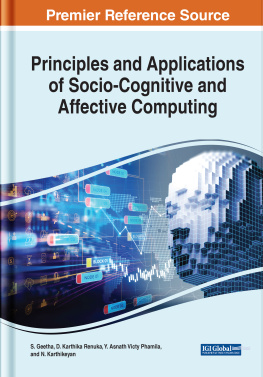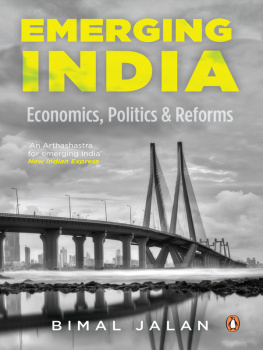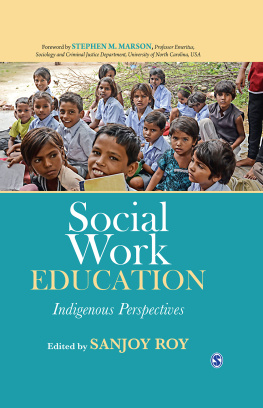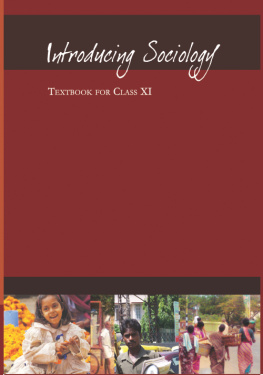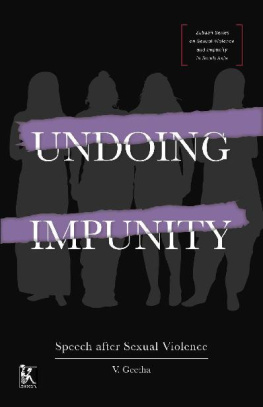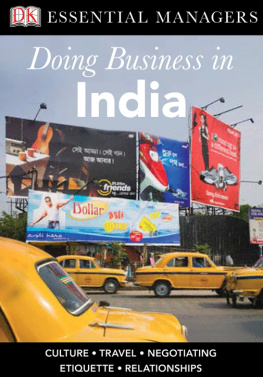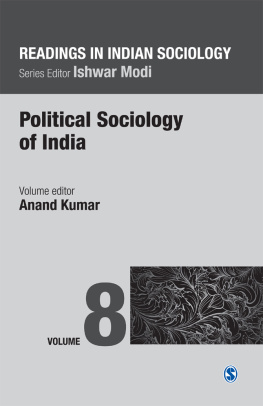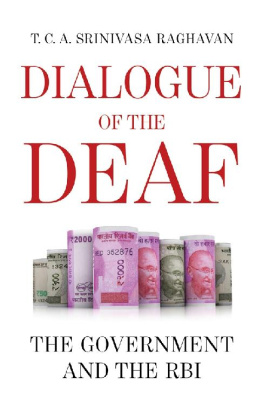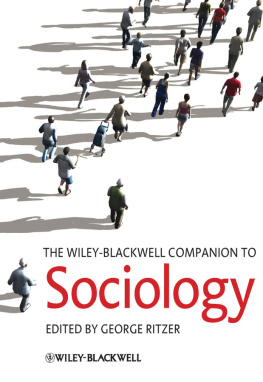Geetha B. Nambissan and Srinivasa Rao - Sociology of Education in India: Changing Contours and Emerging Concerns
Here you can read online Geetha B. Nambissan and Srinivasa Rao - Sociology of Education in India: Changing Contours and Emerging Concerns full text of the book (entire story) in english for free. Download pdf and epub, get meaning, cover and reviews about this ebook. year: 0, genre: Science. Description of the work, (preface) as well as reviews are available. Best literature library LitArk.com created for fans of good reading and offers a wide selection of genres:
Romance novel
Science fiction
Adventure
Detective
Science
History
Home and family
Prose
Art
Politics
Computer
Non-fiction
Religion
Business
Children
Humor
Choose a favorite category and find really read worthwhile books. Enjoy immersion in the world of imagination, feel the emotions of the characters or learn something new for yourself, make an fascinating discovery.

- Book:Sociology of Education in India: Changing Contours and Emerging Concerns
- Author:
- Genre:
- Year:0
- Rating:5 / 5
- Favourites:Add to favourites
- Your mark:
- 100
- 1
- 2
- 3
- 4
- 5
Sociology of Education in India: Changing Contours and Emerging Concerns: summary, description and annotation
We offer to read an annotation, description, summary or preface (depends on what the author of the book "Sociology of Education in India: Changing Contours and Emerging Concerns" wrote himself). If you haven't found the necessary information about the book — write in the comments, we will try to find it.
Sociology of Education in India: Changing Contours and Emerging Concerns — read online for free the complete book (whole text) full work
Below is the text of the book, divided by pages. System saving the place of the last page read, allows you to conveniently read the book "Sociology of Education in India: Changing Contours and Emerging Concerns" online for free, without having to search again every time where you left off. Put a bookmark, and you can go to the page where you finished reading at any time.
Font size:
Interval:
Bookmark:

Page of
PRINTED FROM OXFORD SCHOLARSHIP ONLINE (www.oxfordscholarship.com). (c) Copyright Oxford University Press, 2017. All Rights Reserved. Under the terms of the licence agreement, an individual user may print out a PDF of a single chapter of a monograph in OSO for personal use (for details see http://sci-hub.cc/http://www.oxfordscholarship.com/page/privacy-policy). Subscriber: Boston University Libraries; date: 28 July 2017
Sociology of Education in IndiaTrajectory, Location, and Concerns
Chapter: (p.1) IntroductionSource:Sociology of Education in IndiaAuthor(s):DOI:10.1093/acprof:oso/9780198082866.003.0001
The Introduction discusses the themes covered by the essays in this volume about the history of the development, the trajectory, location, and contemporary concerns of the sociology of education (SoE) in India. The essays included are based on the presentations made at the March 2006 seminar held at the Jawaharlal Nehru University in New Delhi, titled Sociology of Education in IndiaLooking Back, Looking Ahead. The content of SoE courses taught in universities today are rarely a matter of discussion for scholars, and the work of internationally known classical thinkers on SoE have been largely ignored. In this volume, many contributors reflect critically on the work of these scholars in the context of contemporary concerns in education in India. Some chapters focus on the need to include courses on SoE in teacher preparation in India while others attempt to counter neoliberal and intellectually conservative onslaughts on knowledge generation, whichdeflects attention from increasing inequality in society and education. The Introduction outlines the content of the two sections of the volume. The first deals with disciplinary trajectory of SoE and analyses its journey and theoretical and methodological concerns. This is followed by chapters on emerging discourses and contemporary concerns about SoE in India. The second section brings together contributions that break new ground in theoretical and empirical engagement with equality, identity, and exclusions in education.
Keywords: sociology of education, education in India, exclusions in education, theories of education, methodology of education, teacher preparation in India, Jawaharlal Nehru University
Education in contemporary India is marked by sharp inequalities, rising aspirations, and diverse and deeply contested discourses regarding the meaning and purposes of education, who should deliver it, what should be offered as content, and what its relationship should be with the nation state and society. In this sense, the educational arena today in India is vastly different from that in the first decade of post-independent India, where education was seen as a key institution for the larger project of nation building and national development and through which equality of opportunity and social justice could be achieved. Though the non-state sector, primarily through philanthropic initiatives, had played a significant role in the spread of education prior to independence, the overwhelming responsibility of the state, especially in the provision of education to all children, was unquestioned. Today, most of these tenets stand questioned. While nation building is still a major theme in Indian textbooks, the canvas of educational aspirations is now global rather than national for middle-class Indians and the pathway to these opportunities is the private/public school rather than those run by the state. Education policy receives far greater importance today than ever before. It has shifted from broad pronouncements on education as a harbinger of equal opportunity and social change to specific policy shifts and interventions that have far-reaching implications.
Despite the massive expansion of the education system, inequalities continue to be visible at all stages, and even at the elementary level, where non-completion of primary schooling and low transition rates (p.2) are striking among the socially and economically disadvantaged sections of society, such as the Scheduled Castes (SCs), Scheduled Tribes (STs), and socio-religious minorities. Girls within these groups and children with disability are educationally among the most vulnerable. A stratified system of education and complex schoolhomesociety linkages that yielded privilege and disadvantage, were realities in Indian society prior to the 1990s. However, economic and social forces that have come with globalization and privatization in the post-1990s have widened old inequalities, and also created new diversities and inequities that operate and interface in complex ways within the domain of education, its policies, institutions, and processes.
The post-1990s reforms initiated in education as part of the larger economic restructuring in India have led to a number of significant changes: the distinct spread of marketization and commercialization in education; the withdrawal of the state; and the decline in state subsidies which is most visible in higher education. The corporate sector has come in as a key player in school education and there is increasing stratification of institutions in terms of quality. Similar to many anglophile countries, India is also witnessing the spread of neoliberal ideology and an emphasis on the reign of the market, most notably, in the field of education. We are also seeing the persistence of conservative and communal values that call into question values that underlie the democratic and plural character of this society. In the changing socio-economic and political context, concerns of equity have receded to the background, and institutional diversity and choice for greater inclusion are emerging as the new catchwords in educational discourse. The market is increasingly influencing the aims of education and is being viewed, even among the most marginal sections, as the major arbitrator of the futures of their children.
The study of education embedded in a society characterized by social and economic hierarchies and cultural diversity should have been a rich area for sociological enquiry. However, this has not been the case. The sociology of education (SoE) as a sub-discipline of sociology has been a latecomer to the Indian academic arena. The growth of interest in the study of education was largely propelled by policy concerns since the late 1960s. This was not accompanied by the creation of adequate institutional space for the development of SoE. The fallout has been that the building of sociological knowledge critical to the understanding (p.3) of schoolsociety relationships in India, and educational processes and institutions is still a task that has to be urgently addressed. Given the challenge that the study of the complex, contested, and changing terrain of education sets before the sociologist, it becomes important to review the state of SoE and the theoretical and methodological resources that it brings to address contemporary concerns and the possible future paths that it may need to chart.
This volume is part of an effort to reflect on the intellectual field of SoE. The contributions are based on presentations at a seminar on Sociology of Education in IndiaLooking Back, Looking Ahead, organized in 2006 at the Jawaharlal Nehru University, New Delhi, on 9 and 10 March 2006. In addition to the Introduction, there are 11 chapters that are divided into two broad sections. The first section maps the disciplinary trajectory of SoE in India, and chapters in this section critically analyse its journey, the changing institutional domain, and theoretical and methodological concerns. This is followed by chapters that dwell on contemporary concerns and emerging discourses in education. This section brings together contributions that break new ground in theoretical and empirical engagement with equality, identity, and exclusions in education. In the discussion that follows, we trace the emergence and growth of SoE in India. Drawing upon the contributions of our authors, we also map some of the concerns around education in India.
Font size:
Interval:
Bookmark:
Similar books «Sociology of Education in India: Changing Contours and Emerging Concerns»
Look at similar books to Sociology of Education in India: Changing Contours and Emerging Concerns. We have selected literature similar in name and meaning in the hope of providing readers with more options to find new, interesting, not yet read works.
Discussion, reviews of the book Sociology of Education in India: Changing Contours and Emerging Concerns and just readers' own opinions. Leave your comments, write what you think about the work, its meaning or the main characters. Specify what exactly you liked and what you didn't like, and why you think so.

